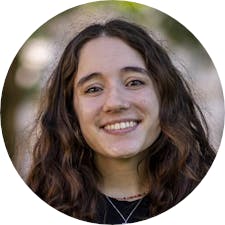Emory University and Georgia State University will establish the Antiviral Countermeasures Development Center (AC/DC), a hub for research dedicated to preventing the next pandemic. The Center will develop potential COVID-19 antivirals, medications that attack viruses, beginning in late June.
Over the next three years, AC/DC will receive $52 million in federal funding, making it one of nine U.S. Antiviral Drug Discovery (AViDD) Centers for Pathogens of Pandemic Concern to receive funding from the National Institute of Allergy and Infectious Diseases (NIAID) as winners of the Antiviral Drug Development Awards. The funding distributed by the NIAID was provided by Health and Human Services under an emergency procurement act by Congress.
The AC/DC was chosen through a multi-step peer review process based on its “scientific and technical merit,” according to a May 20 email to the Wheel from NIAID.
Researchers will focus on developing antivirals that can be given to patients outside the hospital and combat viruses that are more likely to cause future pandemics. The “most promising” antivirals produced by the AViDD Centers will be chosen for late-stage preclinical development.

In a May 18 announcement, NIAID Director Anthony Fauci wrote that COVID-19 has “highlighted the need for new antiviral drugs,” especially those that could be administered at home for patients with mild symptoms.
“Decades of prior research on the structure and vulnerabilities of coronaviruses greatly accelerated our response to the COVID-19 pandemic, and we hope that similar research focused on antivirals will better prepare us for the next pandemic,” Fauci wrote.
University President Gregory Fenves wrote in a May 18 press release that by selecting Emory and Georgia State, the National Institutes of Health and NIAID have made a “game-changing investment in pandemic preparedness and public health.”
“The Antiviral Countermeasures Development Center will generate breakthrough discoveries and build on the innovations pioneered for decades by Emory scientists and Georgia State colleagues,” Fenves wrote. “Georgia has been a leader throughout the pandemic, in medical research, treatment and clinical care, and we will continue to serve at an even higher level through this new center.”
Drug Innovation Ventures at Emory (DRIVE) CEO George Painter (72C, 73G, 77G) will direct the AC/DC alongside Richard Plemper, director of the Center for Translational Antiviral Research at Georgia State. Plemper was previously an associate professor in Emory’s pediatrics department.
The funding for AC/DC follows a decade of Painter and Plemper working together on collecting data in cell culture and animal models for various diseases.
“I'm gratified to get [the funding], but it does bring a lot of responsibility,” Painter said.
Painter is the executive director of the Emory Institute for Drug Development and is a professor in Emory University School of Medicine’s department of pharmacology and chemical biology. He recently led the discovery of the antiviral pill Molnupiravir — which became one of the first orally administrable medications for COVID-19 treatment — and is the co-inventor of over 45 patents, six of which helped develop commercially available drugs treating human immunodeficiency virus (HIV) and hepatitis B.
As a professor at Georgia State’s Institute for Biomedical Sciences, Plemper specializes in the development of therapeutics against myxovirus infection, which refers to any of a group of ribonucleic acid (RNA) viruses including the influenza virus. He has previously developed orally-active antivirals and led the creation of COVID-19 animal models.
The Emory and Georgia State scientists will work with affiliate research partners from across the United States and Estonia, including viral pathogen and drug development experts. Although the nine AViDD Centers will be working independently to produce antivirals, Painter said the researchers involved have long-standing collaborations and will continue to work with other centers.
After the three years of funding are complete, Painter said the government will evaluate if the AViDD Centers are on track to producing drug candidates. If the researchers are successful, they will receive funding for two more years. If not, their Centers will be dissolved.
Conducting antiviral research at the AC/DC is an “exciting” and “timely” opportunity, Painter added, explaining that current “issues” in the world — including conflict and displacement due to war, climate change and urban crowding under poverty — give rise to disease.
“I hope that [the Centers] deliver,” Painter said. “They're going to be very important to making a good level of global health.”
Plemper did not respond for comment by press time.

Madi Olivier (she/her) (25C) is from Highland Village, Texas, and is majoring in psychology and minoring in rhetoric, writing and information design. Outside of the Wheel, she is involved in psychology research, the Emory Brain Exercise Initiative and the Trevor Project. In her free time, you can find her trying not to fall while bouldering and obsessively listening to Hozier with her cat.





